Analyzing Transition Models in Early Childhood Education: A Report
VerifiedAdded on 2019/10/31
|5
|459
|33
Report
AI Summary
This report examines transition models in early childhood education, with a focus on the Early Years Learning Framework (EYLF) and its impact on children's development. The report references the ecological systems model and highlights the importance of the transition process. It outlines a detailed timeline for transitioning a new learner, including stages for planning, implementation, and ongoing support. The timeline incorporates key elements such as the Australian government’s education policy, inclusion support programs, family involvement, staff training, and the creation of a supportive learning environment. The report also underscores the significance of collaboration with various stakeholders, including parents, therapists, and support staff, to ensure a smooth and effective transition for the child. The assignment also references key literature such as Belonging, Being and Becoming: The Early Years Learning Framework for Australia and Young Children's personal, social & emotional development.
1 out of 5
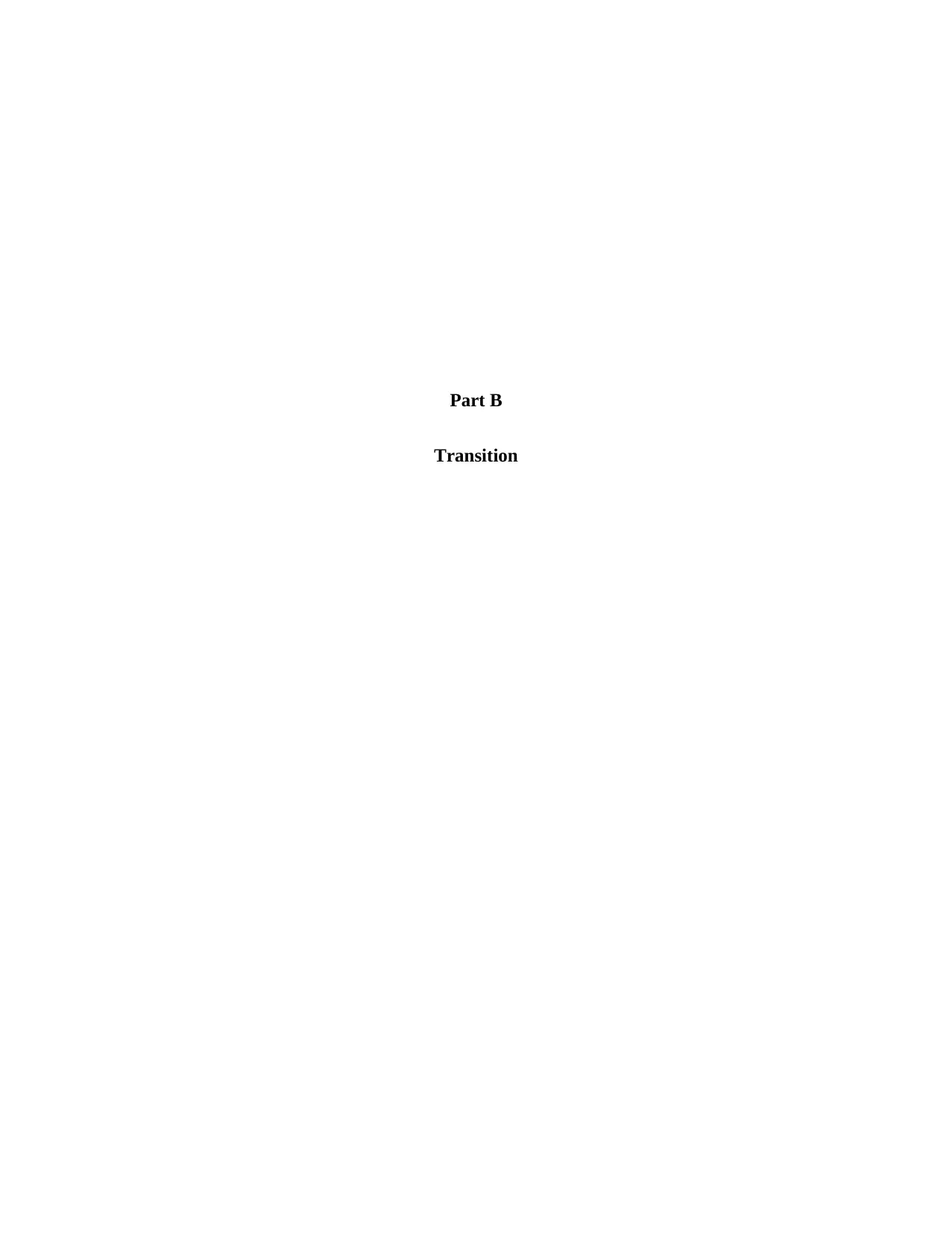
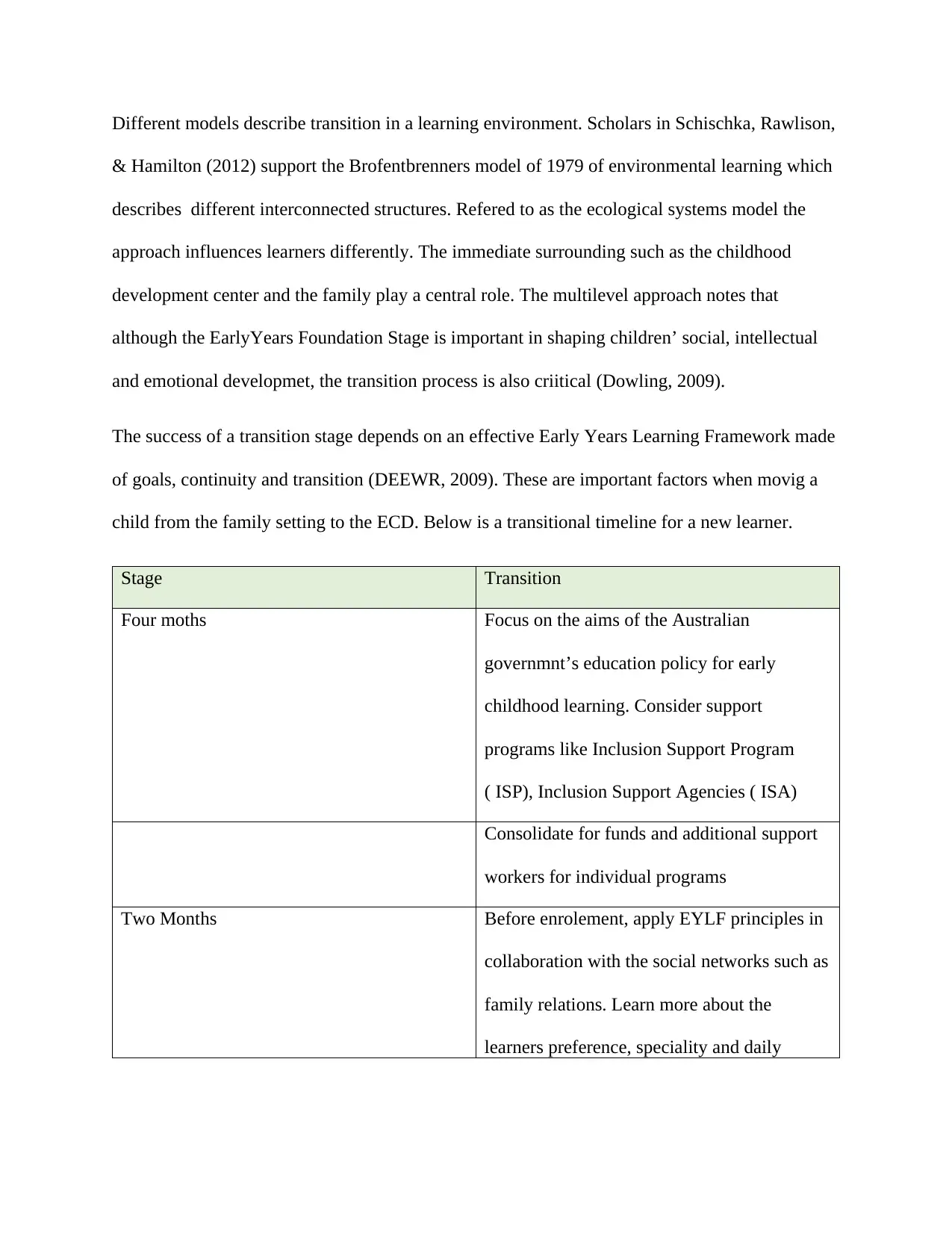
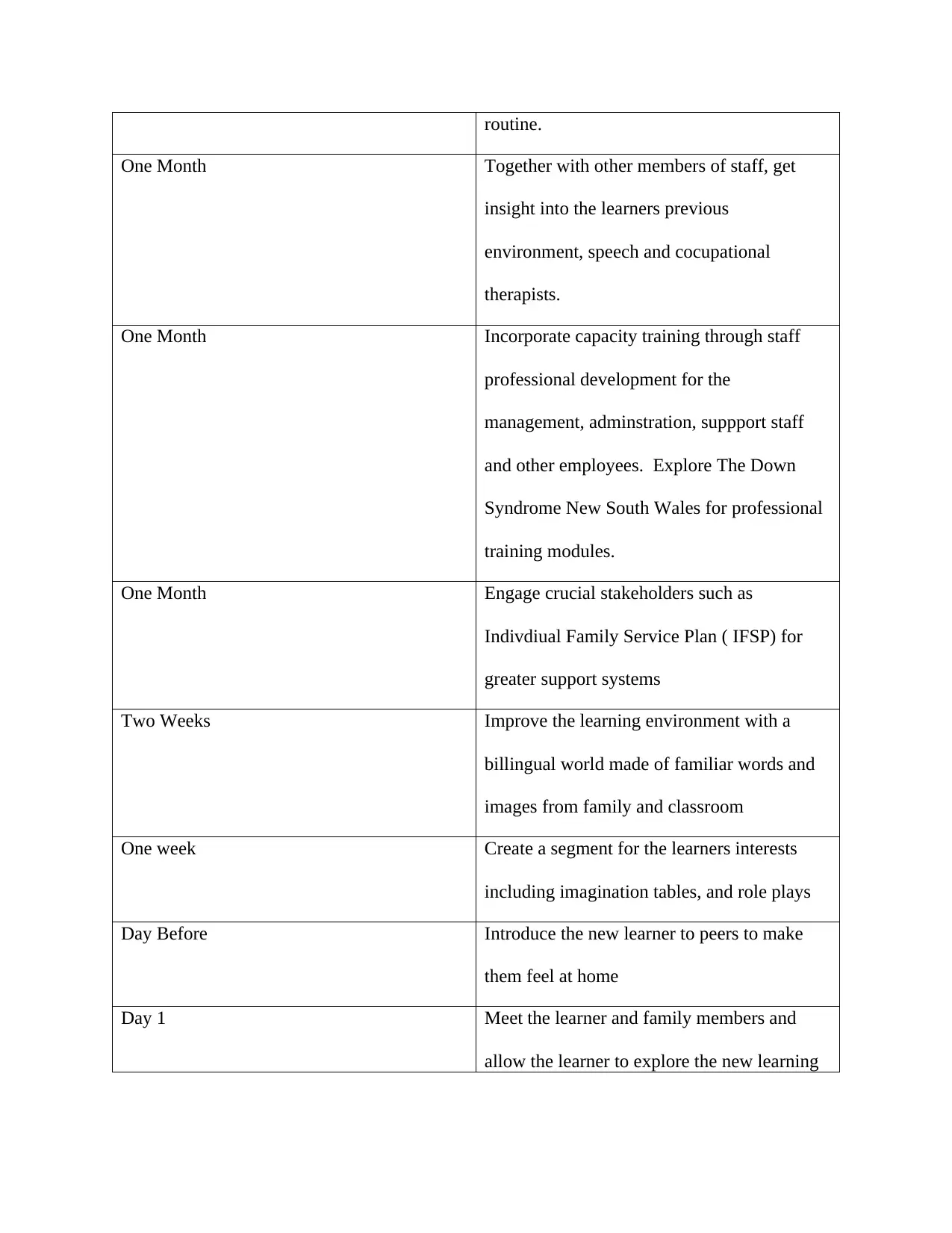

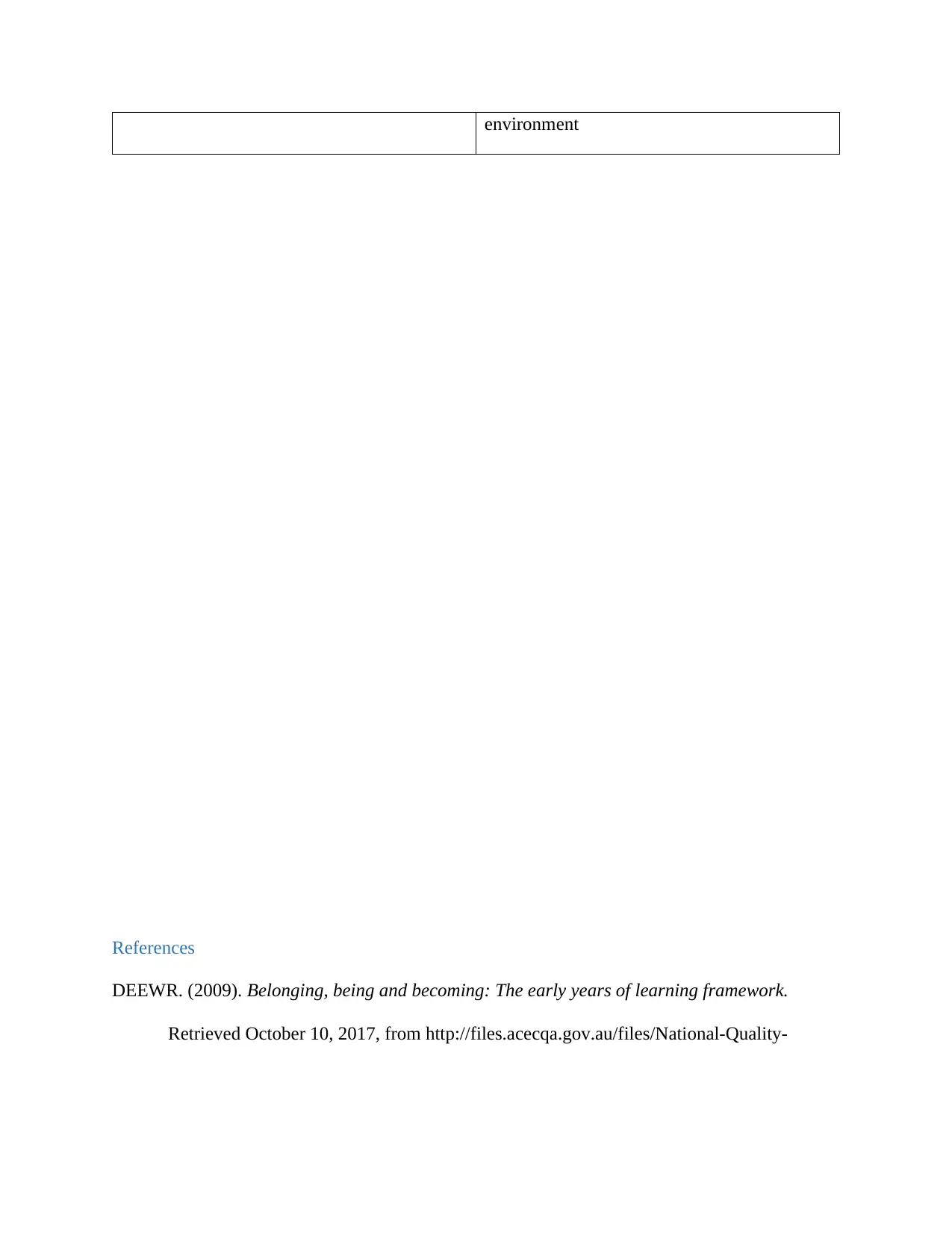
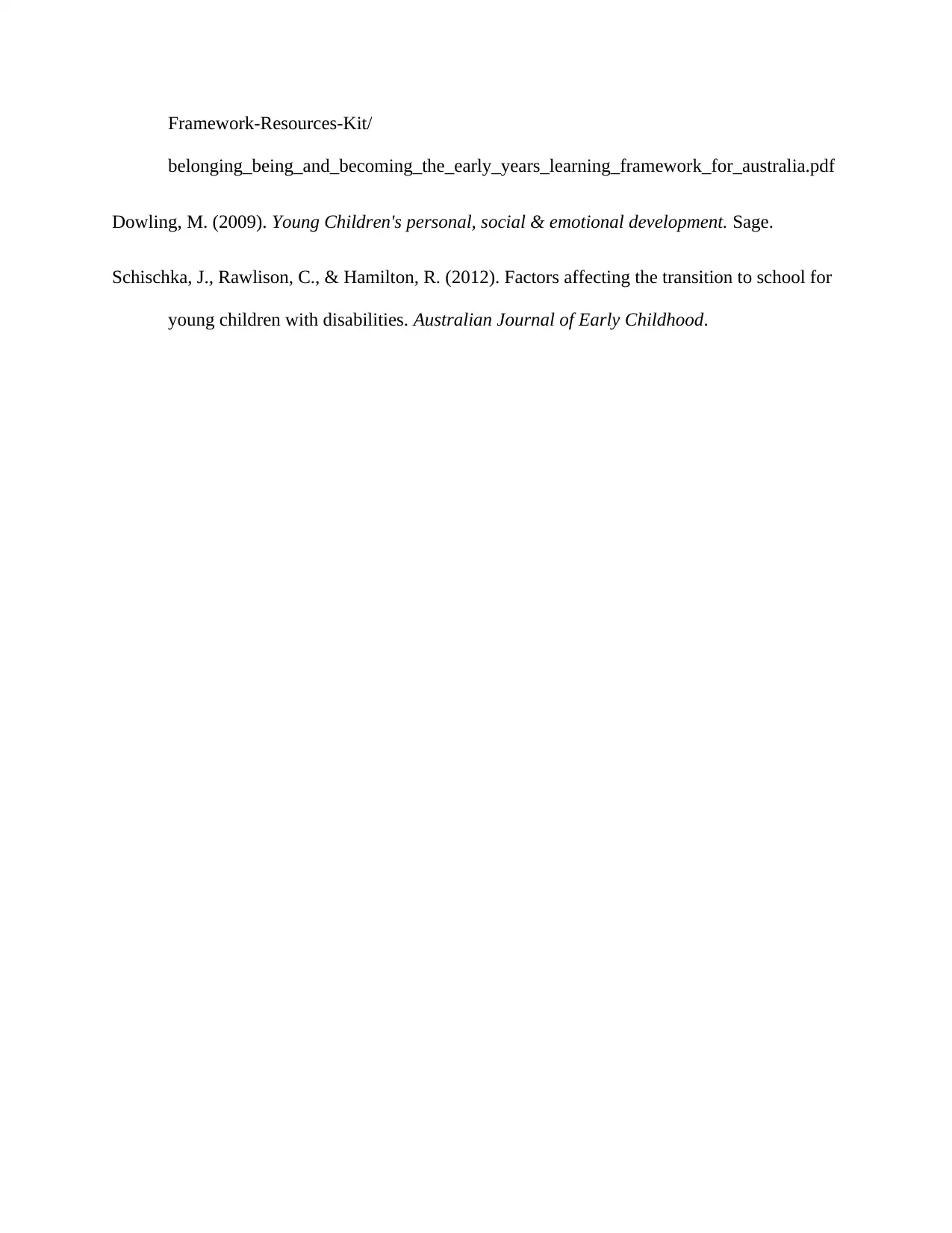





![[object Object]](/_next/static/media/star-bottom.7253800d.svg)